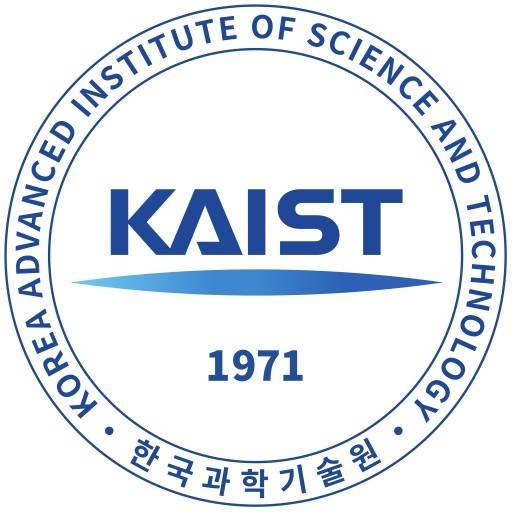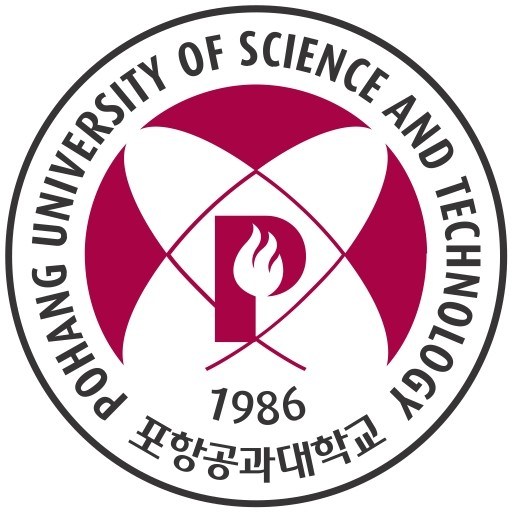Photos of university / #official_kaist
Mechanical Engineering at KAIST is a comprehensive undergraduate program designed to equip students with in-depth knowledge and practical skills in the design, analysis, manufacturing, and maintenance of mechanical systems. The curriculum emphasizes foundational principles such as mechanics, thermodynamics, materials science, and fluid dynamics, while also integrating advanced topics like robotics, control systems, and computational engineering. Students are encouraged to develop innovative solutions to real-world problems through a combination of theoretical coursework, laboratory experiments, and project-based learning. KAIST's state-of-the-art laboratories and research centers provide students with hands-on experience in cutting-edge technologies, fostering competence in areas such as automation, energy systems, and sustainable manufacturing. The program also emphasizes interdisciplinary collaboration, enabling students to work alongside experts from electrical engineering, computer science, and materials engineering to address complex engineering challenges. With a strong focus on research and innovation, students have opportunities to participate in ongoing projects, internships, and industry partnerships that enhance their practical skills and professional development. Graduates of the Mechanical Engineering program at KAIST are well-prepared to pursue careers in academia, industry, and research institutions, contributing to advancements in transportation, energy, robotics, and manufacturing sectors. The program aims to cultivate creative, ethical, and globally minded engineers capable of leading technological innovation and solving societal problems. Through rigorous coursework, experiential learning, and a vibrant academic community, KAIST's Mechanical Engineering program provides a solid foundation for those aspiring to become leaders in the field of mechanical systems and engineering design.
Core course
- Special Lecture on Leadership
- Science Writing in English
- Introduction to Computer Application
- Probability and Statistics
- Introduction to Materials and Engineering
- Engineering Economy and Cost Analysis
- Introduction to Instruments
- Entrepreneurship and Business Strategies
Elective major course
- Mathematical Methods in Mechanical Engineering
- Introduction to Finite Element Method
- Measurement Instrumentation
- Design and Production of Ocean Systems
- Engineering Mechanics in Ocean Systems
- Advanced Fluid Mechanics
- Advanced Thermodynamics
- Advanced Heat Transfer
- Advanced Combustion
- Multiphase FlowⅠ
- Cryogenic Engineering
- Viscous Flow
- Water Wave Mechanics
- Introduction to Fluid-Structure Interactions
- Ocean Hydrodynamic
- Turbomachinery
- Introduction to Nanotech Processing
- Advanced Mechanics of Solids
- Numerical Stress Analysis
- Advanced analysis of solids and structures
- Fracture Mechanics
- Fatigue Fracture and Strength
- Finite Elements Analysis of Structures
- Mechanics of Plastic Deformation
- Optional design of Composite Structures
- Advanced Ocean Systems Design
- Offshore Plant Design
- Stochastic Theory of Structure System
- Reliability and Risk Analysis for Offshore Plants
- Floating Structures
- Optimal Design
- Optimal Design of Ocean Composite Structures
- Theory of Hydrodynamic Lubrication
- Naval Ship Shock Analysis and Design
- Knowledge - Based Design System
- Knowledge-Based Design System for Ocean System
- Reliability in Microsystems Packaging
- Advanced Dynamics
- Linear Vibration
- Introduction to Acoustics
- Robot Dynamics
- Future energy-utilization engineering
- Vibration of Offshore Structures
- Underwater Acoustics
- Dynamics of Offshore Structures
- Dynamics and Control of Ocean Vehicles
- Linear System Control
- Digital System Control
- Microprocessor Application
- Artificial Neural Network : Theory and Application
- Artificial Neural Network:Theory and Applications to Ocean Systems
- Ocean VR Simulation
- Advanced Manufacturing Systems
- Marine Production Systems Engineering
- Joining Engineering
- Introduction to Microfabrication Technology
- MEMS Design and Experimental Microfabrication
- Mechanics and Control of Human Movement
- Biomechanical modeling and Simulation of tissue behavior
- Optomechatronics
- Fuel Cell System Design and Numerical Analysis
- Applied Optics
- Ocean Systems Innovation
- Random Data : Analysis and Processing
- Laser : Principles and Applications
- Harbor Engineering
- Ocean Systems Engineering
- Ocean Systems Management
- Shipbuilding and Offshore Plants Management System
- Introduction to renewable ocean energy
- Human and Energy
- Ocean Feature-Based Modeling
- Metrology
- Boundary Element Method
- Creative Knowledge Creation Process and Application
- Computational Linear Algebra
- Convective Heat Transfer
- Transport Phenomena
- Computational Fluid Mechanics and Heat Transfer
- Automobile Technology and Environment
- Ocean Wave Mechanics
- Turbulence
- Floating Body Dynamics
- Rotating Flow
- Simulation of ships and ocean systems hydrodynamics
- Deepsea Petroleum Production Engineering
- Hydro-elasticity
- Theory of Viscoelasticity
- Mechanical Behavior of Polymeric and Composite Materials
- Smart Materials and Adaptive Structures
- Plastic Analysis and Design of Structures
- Design of Ocean Composite Structures
- Axiomatic Design of Composite Structure
- Medical Biomechanics
- Theory of Mechanisms
- Tribology
- STEP for Electronic Commerce
- Rotor Dynamics
- Ocean Robotics : Techniques and Application
- Mechanical Signature and System Analysis
- Noise Control
- Robotics Engineering
- Ocean Dynamic Positioning System
- Engineering System Identification
- Optimal Control
- Design of Precision Actuation System
- Construction of Offshore Structures
- Product Lifecycle Management System for Ocean System
- Human Robot Interaction: Haptics
- Mechanobiology
- Wave Propagation
- Radiation Heat Transfer
- Experimental methods in High Temperature Thermal Engineering
- Multiphase FlowⅡ
- Ocean Fluid Mechanics Modeling
- Computational Turbulence Modeling
- Stratified Flow
- Computational Turbulence Modeling
- Nonlinear Computational Mechanics of Solid
- Reliability in Strength Design
- Analytical Fracture Mechanics
- Design of Light Sandwich Structures
- Advanced Optimal Design
- Structure-borne Sound
- Nonlinear System Control
- Analysis and Design of Metal Forming Processes
- Molecular Dynamics and Nanomechanics
- Special Topics in Mechanical Engineering
- Special Topics in Ocean Systems Engineering
- Special Topics and Design Laboratory of Ocean Systems Engineering
- Special Topics in Thermal & Fluid Engineering
- Special Topics in Design Engineering
- Special Topics in Dynamics and Control
- Special Topics in Production Engineering
Research
- Ph.D. Thesis
- Seminar (Ph.D)
Requirements
- Application Form
- Statement of Financial Resources
- Letters of Recommendation
- Degree/Diploma
- Transcripts
- English Proficiency Test Reports (EPT)
TOEFL (PBT 560, CBT 220, IBT 83), IELTS 6.5, TEPS 599, TOEIC 720 or higher - Curriculum Vitae
- List of Honors and Awards
- Employment Certificate
- School Profile/Credit Rating System
- The application fee is KRW 80,000 or USD 80. Payment can be made by credit card or bank transfer after writing application form online. Please note that application fee is non-refundable and you cannot modify application form once you pay the application fee.
Scholarships
- KAIST International Student Scholarship
- Korean Government Scholarship (KGSP)
- Russian Government Scholarship – Global Education Program (GEP)
The Mechanical Engineering program at Korea Advanced Institute of Science and Technology (KAIST) is a comprehensive undergraduate curriculum designed to equip students with fundamental knowledge and practical skills in the field of mechanical systems, materials, dynamics, thermodynamics, and manufacturing processes. The program emphasizes a combination of theoretical foundations and hands-on experience, preparing graduates for careers in research, development, and industry sectors such as automotive, aerospace, robotics, energy, and manufacturing. Students engage in core courses such as mechanics, fluid dynamics, heat transfer, materials science, control systems, and design. The curriculum also offers advanced electives and research opportunities to foster innovation, problem-solving abilities, and interdisciplinary collaboration. KAIST's state-of-the-art laboratories and research centers provide a conducive environment for experimental learning and cutting-edge research. The program encourages participation in international projects, industry internships, and collaborations with technological firms to enhance practical understanding and global competitiveness. Graduates of the Mechanical Engineering program are well-positioned to contribute to technological advancements and sustainable development initiatives. The program aims to develop not only technical proficiency but also leadership, communication, and ethical responsibility in engineering practices. Through a carefully structured academic plan, students can tailor their educational paths to fit their specific interests and career goals, including specialization in areas such as robotics, energy systems, or manufacturing engineering. The program is designed to produce versatile engineers capable of addressing complex engineering challenges and innovating solutions that advance society.


